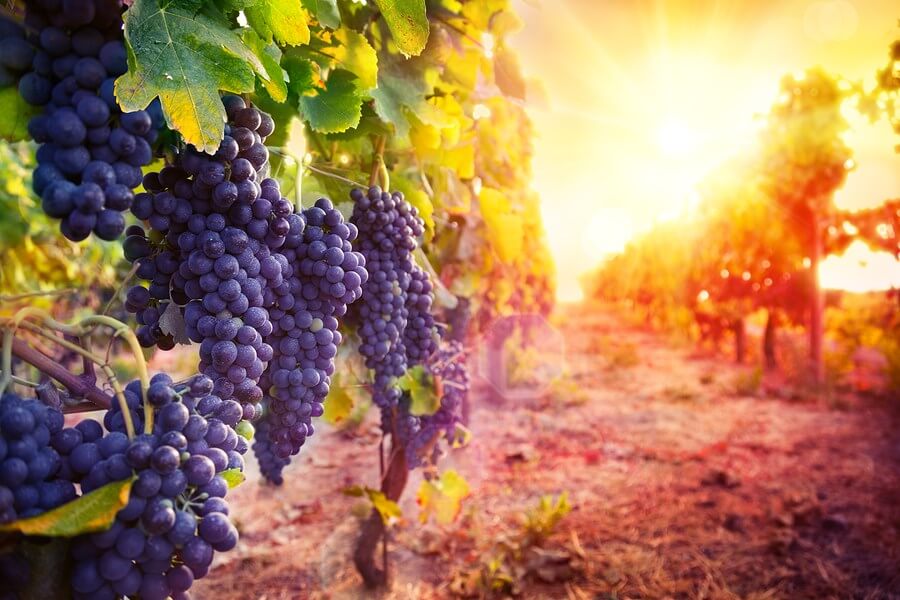Wine is a gift of the earth that keeps on giving. Celebrations, family events, or a night alone on the couch. Organic wines are there for you.

Share this article
Since the turn of the century, the focus on an already green industry has been going organic. In doing so these vineyards have not only produced better wines, but have improved the soils on which their vineyards stand. This has resulted in better overall yield and quality of grapes, being able to plant more, and more quickly. Organic wines are the way of the future.
What Are Organic Wines?
Organic wines are made from grapes that were grown without pesticides and chemical fertilizers. That may sound overly simplified but there’s more to it beneath the surface. There are government classifications involved, and strict regulations. Every step of this process is a great thing by all considerations, and once again means better product, and healthier lands.
For biodynamic winemakers, the vineyard is the body of the operation, the soil, it’s lifeblood. Each taken care of with diligence lest they affect the quality of next years crop.
“Organic” vs. “Made with organic grapes”
In the United States, Organic wine only can bear the USDA organic certification if it is made from organic grapes and includes information about the certifying agency. These third-party certifying agencies regularly audit vineyards to ensure that they comply with the strict standards of organic viniculture.
For a wine to be labeled “organic” in the US, it must have very minimal to no sulfites at all. Sulfite, or sulfur dioxide, is an important preservative in wines. Some organic wines have naturally occurring sulfites, and this is okay. Sulfite has antimicrobial and antioxidant properties, so a small amount within wine is perfectly fine. It maintains the wine’s freshness and reduces oxidation.
Wines labeled as “made with organic grapes” or “made with organically grown grapes” are wines that have added sulfites, aside from naturally occurring sulfites. Winemakers need to add a label stating that the wine “contains sulfites” if the total added sulfites reach more than 10 parts per million.
In Canada and Europe though, organic wine may simply mean wine made from organic grapes that may or may not contain added sulfites. In other words, the Canadian and European wine markets (and pretty much the rest of the winemaking world except the US)laxere lax when it comes to adding information about sulfites in labeling organic wines.
Biodynamic wines
In talking about organic wines, the concept of “biodynamic wines” also comes up. Biodynamic farming, like organic farming, does not use artificial fertilizers or chemical pesticides and herbicides. But it also considers the overall health of the farm and the entire ecosystem of the vineyard.
Biodynamic farming practices use natural soil supplements and special herbal preparations to revitalize the soil and prevent deterioration. For biodynamic winemakers, the vineyard is the body of the operation, the soil, it’s lifeblood. Each taken care of with diligence lest they affect the quality of next years crop. Sustainability is at the core of biodynamic farming; the vineyard needs to be healthy enough to replenish itself from year to year.
Growing Organic Grapes
Organic farming methods do not use chemical pesticides. Therefore, vineyards need to control pests using alternative techniques. Spider mites are common pests that infest grapevines. To prevent infestation, many farmers use a combination of irrigation, tillage, pruning, fruit thinning, cover crops, and natural insect predators. Some vineyards have actually created perfect ecosystems. Small birds and predators stay to eat the spider mites and other pests, while larger birds of prey come to feed on the smaller birds and rodents. It is a near perfect protection system, using no harmful pesticides or herbicides.
The type of and health of soil also affects the growth of grapevines. To maximize yield without using artificial fertilizers, farmers need to know the right grape variety that will flourish in the region. For this reason, it’s much harder to grow organic grapes in places with higher humidity. Some regions are just better suited for growing grapes naturally than others because of their climate and topography.
Weeds are also a source of the problem for organic vineyards; for most growers, it’s the most difficult problem to control organically. Natural herbicides that actually work on a commercial level are not yet available, so farmers resort to techniques such as mechanical weeding, under-vine mowing, and mulching. These all have pros and cons, so most vineyards use a combination of these techniques to remove unwanted plant growth.
Sustainability is crucial to organic wine-making!
Is Organic Wine Superior To Non-Organic wine?
You may not taste the difference, but your body will. The organic movement focuses heavily on watching what you as a personputs in your body. By reducing toxins from lack of pesticides and herbicides, and creating a more natural product; there is really no question that organic wine as a product is superior. Green wineries do not necessarily producea better product, but they are better for the world. Wines vary in taste even using the same grape, or by aging processes in barrels or in the bottle. The debate on which wine is superior is a complicated discussion; but it is never a bad thing to watch what you put in your body, and stay organic.